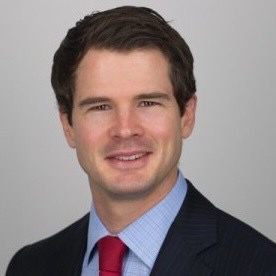Toby Carrodus became a multimillionaire in his early 30s by investing and trading for institutions and himself. He uses quantitative methods in investment management to identify profitable investment opportunities and manage risk.
He says shaping a career as a successful global investor and quantitative analyst was “an extremely challenging process.” Carrodus achieved a Bachelor of Economics and a B.A. in political science from the Australian National University. He then earned a Master of Science in Economics from Humboldt-Universität zu Berlin in Germany. Early in his career, Carrodus witnessed technology’s impact on the trading industry. Technology was transforming jobs.
He describes the scenario: “People who created reports and analytics were being replaced by computer programs. Execution traders were replaced by automated algorithms, and fundamental analysts were replaced by quantitative analysts.”
This dynamic presented a silver lining that Carrodus recognized. The shift inspired Carrodus to teach himself Python, a computer programming language used to automate tasks and conduct data analysis. Even as automation was decimating jobs, Python’s powerful computing abilities helped him scale investing processes and streamline many day-to-day tasks.
He says, “Harnessing the power of computers in an age of such technological advancement has allowed me to ride that wave rather than being run over by it. Every day you wake up with a chance and a choice. I decided back then I was going to teach myself how to best integrate technology into my career and do my best to stay at the cutting edge.”
Carrodus’ significant investment of time in teaching himself Python didn’t hold Carrodus back in his field. Instead, the computer language became a tool to simplify his complicated work.
Toby Carrodus Explains How Simplicity Eclipses Complexity in the Investment Arena
One concept investor Toby Carrodus highlights is the general preference to use simpler rather than complex models. Despite its benefits, simplicity is often overlooked.
“Complexity can be sold more easily,” Carrodus says. “Complex models signal effort, intellect, and innovation, whereas simple models may be dismissed as lacking in validity.”
In a professional environment, complexity can be used to demonstrate a company’s expertise and resources. In reality, however, complexity is often unwarranted.
“Many of the models used by hedge funds are relatively simple,” explains Carrodus. “The teams of PhDs companies hire are often for marketing purposes – so-called ‘window dressing.’”
A lifelong learner, Carrodus has studied works about political forecasting, judgment, decision-making, and behavioral economics by scholars Paul Meehle, Daniel Kahneman, and Philip Tetlock. Their findings affirm his theory about the superiority of simple models over complex. For example, in the past Carrodus has worked with research teams in which members tried to outdo each other by adding increasingly complex features. Such behavior created “complicated yet fragile models that yielded only statistically insignificant gains,” he says.
Toby Carrodus Recommends Achieving Simplicity Via Price-Based Signals and Parsimonious Models
By focusing on simplicity, traders can avoid the pitfalls of complexity, Toby Carrodus says. He suggests investors follow price-based signals and use parsimonious models.
He says that following price-based signals simplifies the type of data being processed. These signals also provide faster feedback on what works and what doesn’t. Carrodus explains that market prices communicate the information of millions of economic actors in an abridged form. By focusing on price-based information, traders don’t necessarily need to be subject matter experts to be successful.
“The links between fundamental data and prices are often tenuous,” Carrodus explains. “And prices contain a wealth of information, such as autocorrelation, correlation, and volatility.”
Another way to achieve simplicity is to use models with a small number of specifiable parameters relative to the number of data points available. Models with too many parameters tend to suffer from reduced statistical forecasting power. In trading, the temptation to include additional parameters to fit historical data can lead to poor predictions when applied to new data generated by the same underlying process, Carrodus explains.
Toby Carrodus Says Simple is Not Always Easy
Certain concepts act as a foundation for a rules-based trading system, Toby Carrodus says. For example, it is wise to maintain a level of diversification across sources of return. Investors can diversify across asset classes, trading models, and time horizons to reduce risk and increase the robustness of their portfolios.
But human nature will be human nature. Traders will be tempted to meddle, even when armed with the most robust system. Carrodus calls this behavior “medicating emotions” rather than making meaningful improvements. He says that while the best trading models tend to be of simpler nature, what is simple is not easy.
“For example, getting absolutely ripped and muscular is simple,” Carrodus says. “You eat a balanced diet of protein, carbohydrates and healthy fats and exercise regularly. Sounds simple, but is it easy? No.”
As with most endeavours in life, such as attaining an education, improving one’s health or becoming wealthy, the concepts applied are quite simple, but none of them are easy. The same goes for systematic trading, says Toby Carrodus.
“Often, the concepts are cringeworthily simple,” Carrodus says. “But following them day in, day out and living through losing periods and drawdowns, and still taking every trade – is not easy. You have to be committed to the process.” Toby Carrodus certainly seems to be.

